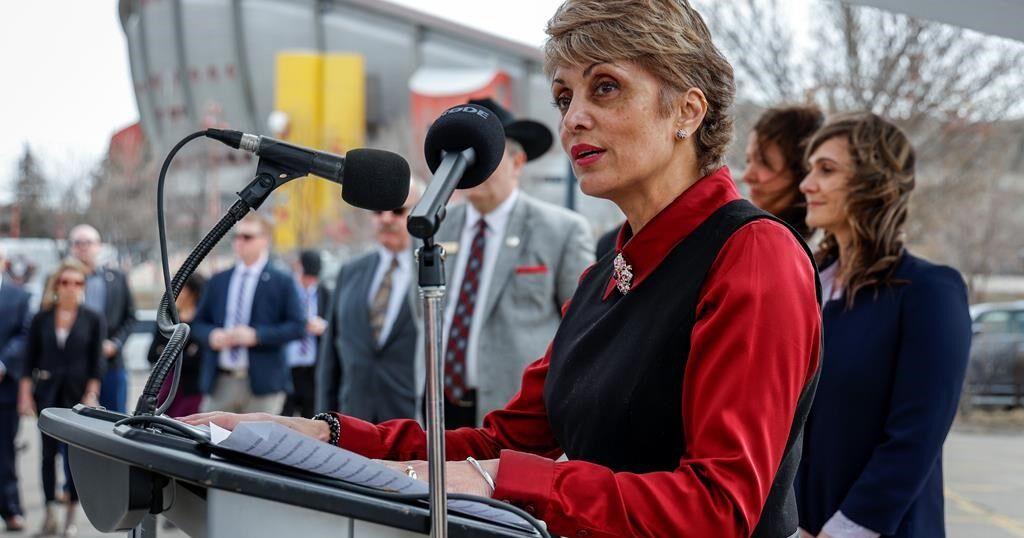Calgary is lifting water restrictions that lasted much of the summer following successful repairs to a major feeder main.
Mayor Jyoti Gondek told a news conference Sunday morning that the Bearspaw South feeder main is now open and back in service for the Calgary region.
Since late August, there has been a ban on any outdoor water use with potable supplies, and Calgarians have been urged to take shorter showers, skip toilet flushes and hold off on laundry and dishes.
It was the second round of water rationing since the feeder main in northwest Calgary burst in early June.
“Whether you turned off the shower while you were soaping up or only did full loads of laundry, every litre saved reduced pressure on our water system, making sure that we all had safe, treated drinking water reaching our homes and our businesses while our crews worked tirelessly to repair the feeder main,” Gondek said Sunday.
There are still two smaller sections of pipe to repair in October and November, but the city said they won’t require city-wide water restrictions because the sections can be isolated while keeping the feeder main running.
The city is asking residents to ease into normal water use over the next few days to help even out any spikes in demand, which it said will be easier on the system.
“You may have a mountain of laundry you’ve been waiting to tackle, a pressure-wash job that you’ve been holding off, or you may just want to take that extra-long, guilt-free shower,” Francois Bouchart, the city’s director of capital priorities and investment, said Sunday.
“Where possible, we would just ask you to please space these things out over the next few days.”
Bouchart cautioned that the water flowing from taps may appear cloudy and smell of chlorine, but assured that the conditions are temporary and the water is safe to drink.
It all began June 5, after the massive water main supplying 60 per cent of the drinking water for the city ruptured and flooded streets. A directive was issued to have Calgarians cut their indoor water use by 25 per cent. Car washes and indoor pools were also closed.
Crews scrambled to repair the line and, in the process, found five more weak spots to fix. The city declared a state of local emergency which remained in place until just before July’s Calgary Stampede, and most restrictions were lifted and public outdoor pools reopened.
Then, in early August, Gondek announced that extended tests on more than 10 kilometres of pipe revealed over a dozen more problem spots that needed to be fixed. The city’s 1.6 million residents and those in surrounding communities were once again urged to conserve water indoors while a sweeping ban on outdoor watering resumed.
Daily updates were issued on the progress of repairs, as well as how much water the city was using. Non-potable water filling stations for gardens were also set up.
On some days, water use was higher than what officials said was the limit for keeping the system safely running, prompting pleas for conservation from Gondek and city officials.
Many residents, commuters and businesses also faced street closures while repair work was done.
“We know this has not been easy. We have asked you to make some changes to your most basic routines and make sacrifices personally so that we had enough water for the most essential uses,” Bouchart said.
The city said it expects to receive a forensic report from consultants on what caused the problems with the feeder main by the end of October, and details on its findings will be shared when they are available.
The cost of June’s emergency repair, which included the five hot spots, has been estimated to be between $20 and $25 million, according to the city. It said initial estimates of the latest repairs is somewhere between $15 and $20 million.
Gondek said Sunday that she will work with fellow mayors across Canada to make sure funding sources are established to address the safety and security of infrastructure like water networks.
When asked by reporters about compensation for residents or businesses affected by the disruptions, Bouchart responded that the city has been in contact with affected parties and that recommendations will come forward at a later date.
This report by The Canadian Press was first published Sept. 22, 2024.
